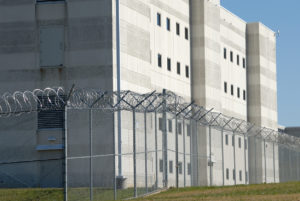What mental health resources are available to people in jails?
Technical Assistance Memorandum 24-04 dated June 5, 2024, was sent by Brandon Wood, Executive Director of the Texas Commission on Jail Standards (TCJS) to all Texas sheriffs and jail administrators. The memo is regarding “Local Mental Health and Behavioral Health Authorities and County Jails.” Along with training and high-level consultation, technical assistance is provided to local government to increase and maintain compliance with adopted standards.
Existing mental health requirements for Texas county jails are reiterated, as follows:
Texas jails have the responsibility of providing all people in their care with medical, mental and dental services. This includes 24-hour-per-day, 7-days-per-week access to mental health professionals, whether at the jail or through telehealth services. Within a reasonable time, if neither of those avenues of access are available for an inmate needing mental healthcare, the jail must provide that person with access to a qualified mental health professional, at a minimum.
Requirements in jails regarding Local Mental Health Authority (LMHA) or Local Behavioral Health Authority (LBHA):
People experiencing a mental health crisis have access to mental health crisis response services as a result of a contract between LMHA/LBHA and the Health and Human Services Commission (HHSC). Jail personnel can call their area LMHA/LBHA crisis hotline to request mental health crisis response services.
The following defines individuals experiencing a mental health crisis:
- Present an immediate danger to self or others; or
- There is a risk of serious deterioration of the person’s mental or physical health; or
- The individual believes they present an immediate danger to self or others or their mental or physical health is at risk of serious deterioration.
What to expect when you call your LMHA/LBHA crisis hotline:
Crisis hotlines operate 24 hours a day, 7 days per week. Trained and competent crisis staff provide crisis screenings and, if determined necessary, crisis assessments.
- What happens in a crisis screening? The LMHA/LBHA will collect information through a phone interview with the individual or jail staff to make a clinical decision about whether an in-depth crisis assessment or emergency care services are needed.
- What happens in a crisis assessment? If a crisis screening indicates that an in-depth crisis assessment is necessary, the LMHA/LBHA will conduct the in-person, audiovisual, or audio-only crisis assessment to collect additional in-depth information about the individual experiencing a crisis and their needs for mental health services.
What happens after a crisis screening and/or assessment?
The LMHA/LBHA will provide the jail’s behavioral health provider with crisis intervention strategies and recommendations that are in keeping with the jail’s policies and procedures.
To provide additional mental health services for people in custody, jails can independently contract with a private healthcare provider or the LMHA/LBHA.
The memorandum provides a website that will help jail administrators and sheriffs locate the LMHA/LBHA and associated crisis hotlines in their area.
Who to contact if you are concerned about access to crisis services:
If sheriffs or jail administrators have a concern about access to behavioral health crisis services or would like to file a complaint about services, they are advised to contact:
- The Clients’ Rights Office available at each LMHA or LBHA; or
- The HHS Ombudsman for Behavioral Health (OBH); or
- The Ombudsman hotline at 1-800-252-8154, Option 1.
If you had a family member who suffered life-changing injury or died in a jail as a result of not receiving mental or mental health care, contact our law firm. We might be able to help.

